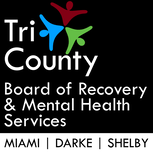Prevention
An ounce of prevention is worth a pound of cure. |
Ben Franklin was referring to fire prevention when he wrote those famous words "an ounce of prevention is worth a pound of cure," but he well have been referring to substance abuse and mental illness.
Prevention - getting out in front of the problem - is almost always more cost-effective and desirable than treatment after the fact. In some circumstances, such as suicide, we have only prevention - there is no treatment. As stated by the White House Office of National Drug Control Policy: Preventing drug use before it begins is the most cost-effective, common-sense approach to promoting safe and healthy communities. Research shows an association between drug use and traffic crash deaths, lost productivity and poorer academic performance. Illicit drug use also contributes to HIV-transmission rates and puts children at risk for abuse and neglect. If we can prevent substance use and dependence before it ever begins, we can save lives and cut costs related to healthcare and criminal justice. Prevention of mental illness is more complex, and research is ongoing, with many encouraging studies, especially for the prevention of depression and anxiety disorders.
Certainly understanding mental illness as medical disorders of the brain, and reducing stigma in general, helps more people recognize, confront and seek help for developing mental illness before it reaches a crisis level. The Tri-County Board strategically supports prevention efforts through population-based programming and by funding prevention activities through the service provider network. |
24-Hour Crisis Hotline 800.351.7347
If you or someone you know is in crisis and needs help,
call the Tri-County CRISIS Hotline 800.351.7347 The 24-Hour Crisis Hotline serves residents of Miami, Darke, and Shelby counties in Ohio. In crisis but can't talk? Crisis Text Line Text 4Hope to 741741 Suicide and Crisis Lifeline Call or Text 988, chat at 988lifeline.org |

Tri-County Board of Recovery & Mental Health Services
1280 N. County Road 25A, Suite #1 Troy, OH 45373 937.335.7727 | FAX 937.335.8816 Email us at [email protected] M-F 8:00AM - 4:30PM. Closed federal holidays. Services provided are funded in whole or in part by your continued support of the Tri-County Mental Health Levy.
The Tri-County Board of Recovery and Mental Health Services is an Equal Opportunity Employer |
